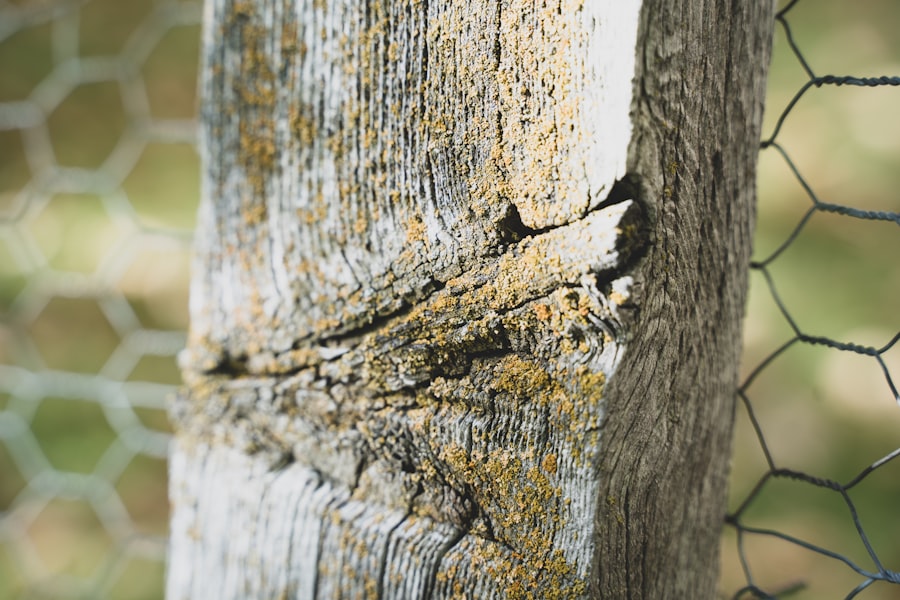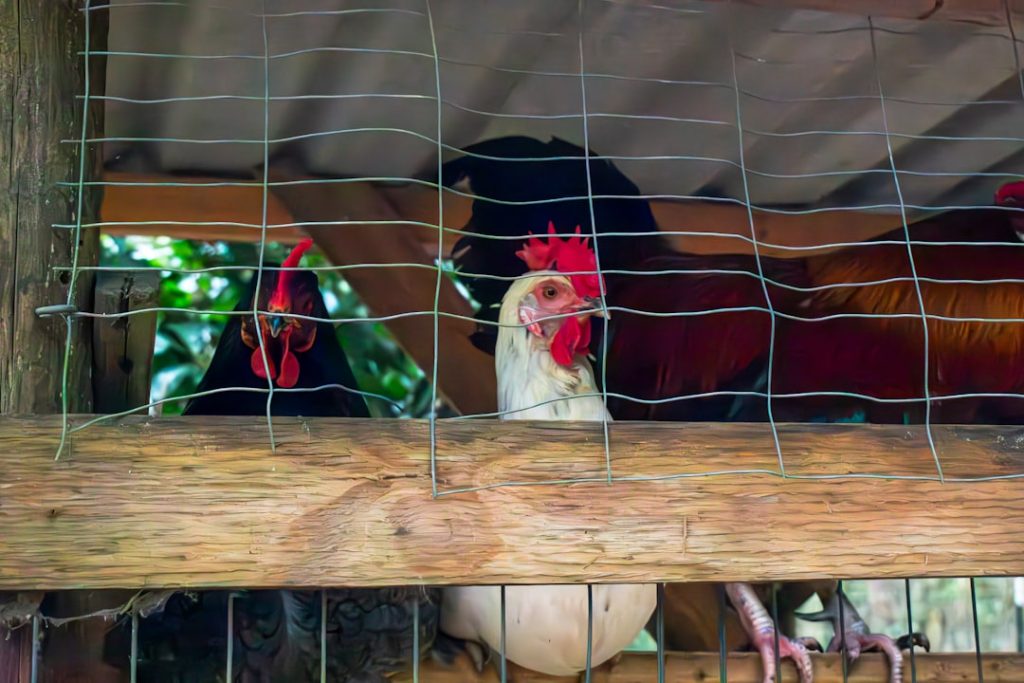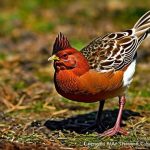Chickens exhibit natural curiosity and opportunistic behavior, frequently exploring their environment in search of sustenance and novel experiences. They are easily frightened and will swiftly retreat from perceived dangers. Comprehending these behavioral traits is essential for safeguarding property against chicken-related damage.
By recognizing their innate tendencies, property owners can better anticipate potential access points and implement preventive measures accordingly. Chickens are known for their persistence and will repeatedly attempt to access areas they perceive as rewarding, such as those offering food or shelter. Consequently, a single attempt to drive them away may prove insufficient in preventing their return.
This persistence must be taken into account when designing and implementing deterrents and barriers. A thorough understanding of chicken behavior enables the development of more effective strategies for protecting property from potential damage caused by these birds.
Table of Contents
- 1 Creating physical barriers
- 2 Using natural deterrents
- 3 Implementing scare tactics
- 4 Providing alternative food sources
- 5 Consistent monitoring and maintenance
- 6 Seeking professional advice
- 7 FAQs
- 7.1 What are some natural ways to keep chickens away from tomatoes?
- 7.2 Are there any commercial products available to keep chickens away from tomatoes?
- 7.3 Why is it important to keep chickens away from tomatoes?
- 7.4 Can chickens be trained to stay away from tomatoes?
- 7.5 What are the potential risks of using chemical deterrents to keep chickens away from tomatoes?
Key Takeaways
- Chickens are naturally curious and will explore their surroundings, so understanding their behavior is key to deterring them from unwanted areas.
- Creating physical barriers such as fences and netting can effectively keep chickens out of specific areas.
- Using natural deterrents like citrus peels, coffee grounds, or vinegar can help repel chickens from certain areas.
- Implementing scare tactics such as motion-activated sprinklers or noise-making devices can startle chickens and discourage them from returning.
- Providing alternative food sources away from the targeted area can help redirect chickens’ attention and reduce their interest in unwanted spaces.
- Consistent monitoring and maintenance of deterrent methods is essential for long-term success in keeping chickens away.
- Seeking professional advice from a local agricultural extension office or poultry expert can provide additional insights and strategies for managing chicken behavior.
Creating physical barriers
Installing Fences and Netting
This can include installing fences or netting around areas where they may try to gain entry, such as gardens or outdoor dining areas. It’s important to ensure that these barriers are secure and tall enough to prevent the chickens from flying or jumping over them.
Securing the Barriers
Additionally, burying the bottom of the fence or netting can help prevent them from digging underneath to gain access. Another option for creating physical barriers is to use chicken wire or hardware cloth to cover vulnerable areas, such as vents or openings in buildings.
Protecting Your Property
This can prevent chickens from entering and causing damage to structures or equipment. By creating physical barriers, you can effectively limit the areas where chickens can cause damage and protect your property from their potential impact.
Using natural deterrents

In addition to physical barriers, natural deterrents can also be effective in preventing chickens from causing damage to your property. One common natural deterrent is the use of predator decoys, such as fake owls or snakes, which can help deter chickens by mimicking potential threats. These decoys can be strategically placed in areas where chickens may try to access your property, such as gardens or outdoor seating areas, to help keep them at bay.
Another natural deterrent is the use of strong scents, such as citrus or vinegar, which chickens may find unpleasant and avoid. By spraying these scents in areas where chickens may try to access your property, you can help deter them from causing damage. Additionally, planting certain types of vegetation, such as marigolds or lavender, can also help repel chickens due to their strong scent.
By using natural deterrents, you can help protect your property from chicken damage in a non-harmful way.
Implementing scare tactics
Scare tactics can be an effective way to deter chickens from causing damage to your property. One common scare tactic is the use of noise, such as clapping or using a whistle, to startle chickens and encourage them to flee. This can be particularly effective when used in combination with other deterrents, such as predator decoys or strong scents, to create a more comprehensive strategy for keeping chickens at bay.
Another scare tactic is the use of motion-activated devices, such as sprinklers or lights, which can startle chickens when they approach a certain area. This can help deter them from causing damage by creating an unexpected and unpleasant experience. By implementing scare tactics, you can help discourage chickens from accessing areas where they may cause damage and protect your property from their potential impact.
Providing alternative food sources
One way to prevent chickens from causing damage to your property is by providing alternative food sources that can help satisfy their natural foraging instincts. This can include setting up designated feeding areas with chicken feed or scattering birdseed in areas away from vulnerable parts of your property. By providing alternative food sources, you can help redirect the chickens’ attention away from areas where they may cause damage and encourage them to forage in more suitable locations.
Another option is to plant cover crops or grassy areas specifically for the chickens to forage in, which can help satisfy their natural instincts while also protecting other parts of your property from potential damage. By providing alternative food sources, you can help mitigate the impact of chickens on your property and reduce the likelihood of them causing damage in vulnerable areas.
Consistent monitoring and maintenance

Inspecting for Signs of Chicken Activity
Regular checks for signs of chicken activity, such as droppings or feathers, are essential in identifying potential vulnerabilities. By taking proactive measures to address these issues, you can prevent potential problems before they arise.
Maintaining Natural Deterrents and Scare Tactics
Consistent maintenance of natural deterrents and scare tactics is vital in ensuring their effectiveness over time. This may involve refreshing scents or replacing predator decoys to maintain their impact on deterring chickens.
Preventing Potential Issues
By consistently monitoring and maintaining your property’s defenses against chicken damage, you can help prevent potential issues before they arise and protect your property from their impact.
Seeking professional advice
If you are struggling to protect your property from chicken damage, it may be beneficial to seek professional advice from experts in poultry management or pest control. These professionals can provide valuable insights and recommendations for addressing the specific challenges you are facing with chickens on your property. They may also be able to offer specialized solutions or techniques that can help effectively deter chickens and prevent them from causing damage.
Professional advice can also be helpful in identifying any underlying issues that may be attracting chickens to your property, such as food sources or shelter opportunities. By addressing these root causes, you can help reduce the likelihood of chickens causing damage in the first place. Ultimately, seeking professional advice can provide you with the expertise and support needed to effectively protect your property from chicken damage and minimize its impact on your surroundings.
If you’re looking for more tips on keeping chickens away from your garden, check out this article on how big a coop needs to be for a chicken. It offers valuable insights on creating a suitable living space for your chickens to help prevent them from wandering into your tomato patch.
FAQs
What are some natural ways to keep chickens away from tomatoes?
Some natural ways to keep chickens away from tomatoes include using physical barriers such as fences or netting, planting deterrent plants like marigolds or garlic around the tomatoes, and using natural repellents like citrus peels or vinegar.
Are there any commercial products available to keep chickens away from tomatoes?
Yes, there are commercial products available such as chicken repellent sprays or granules that can be used to deter chickens from getting near the tomato plants.
Why is it important to keep chickens away from tomatoes?
It is important to keep chickens away from tomatoes because they can cause damage to the plants by pecking at the fruit, scratching up the soil around the plants, and potentially spreading diseases.
Can chickens be trained to stay away from tomatoes?
Chickens can be trained to stay away from tomatoes by using positive reinforcement techniques such as rewarding them for staying away from the plants and providing them with alternative sources of food and entertainment.
What are the potential risks of using chemical deterrents to keep chickens away from tomatoes?
The potential risks of using chemical deterrents to keep chickens away from tomatoes include the possibility of harmful effects on the chickens, the environment, and the tomatoes themselves. It is important to carefully read and follow the instructions on any chemical products and consider the potential impact on the surrounding ecosystem.
Meet Walter, the feathered-friend fanatic of Florida! Nestled in the sunshine state, Walter struts through life with his feathered companions, clucking his way to happiness. With a coop that’s fancier than a five-star hotel, he’s the Don Juan of the chicken world. When he’s not teaching his hens to do the cha-cha, you’ll find him in a heated debate with his prized rooster, Sir Clucks-a-Lot. Walter’s poultry passion is no yolk; he’s the sunny-side-up guy you never knew you needed in your flock of friends!







